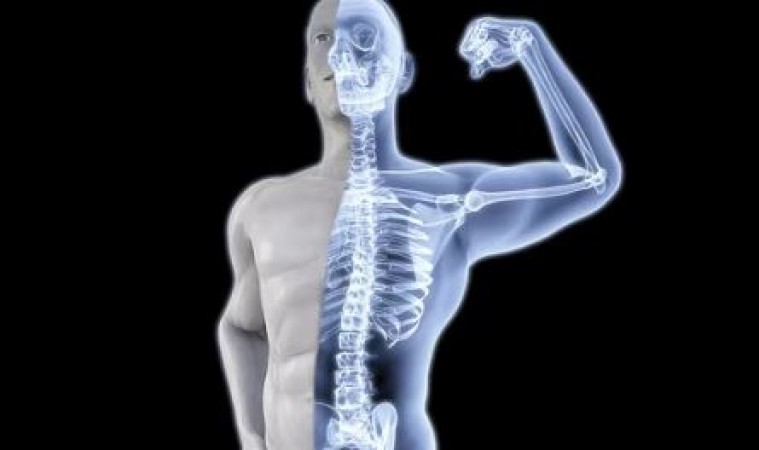
Weak bones can lead to numerous health issues, including fractures and conditions like osteoporosis. However, incorporating cheese into your diet can provide significant benefits for bone health. Here’s how a simple slice of cheese can help strengthen your bones and offer other health advantages.
1. Strengthens Bones with Essential Nutrients
Cheese is packed with essential nutrients that are crucial for maintaining strong and healthy bones. Here’s how it helps:
Calcium: Cheese is an excellent source of calcium, a mineral vital for bone density and strength. Calcium helps in building and maintaining bone mass. A deficiency in calcium can lead to brittle bones and increase the risk of fractures. Including cheese in your diet can help you meet your daily calcium needs, thus supporting bone health.
Vitamin D: This vitamin is essential for the absorption of calcium in the body. Many types of cheese are fortified with vitamin D, which enhances calcium absorption and helps in maintaining bone integrity. Proper vitamin D levels ensure that calcium is effectively utilized, leading to stronger bones.
Protein: Cheese is rich in protein, which is necessary for bone repair and maintenance. Proteins play a key role in the formation of bone tissue and the overall health of bones. Adequate protein intake from cheese supports bone regeneration and helps prevent bone loss.
2. Enhances Immune System Function
A healthy immune system is crucial for overall well-being and bone health. Cheese can bolster your immune system due to its content of:
Vitamin B12: This vitamin is vital for producing red blood cells and maintaining nerve health. Adequate levels of vitamin B12 contribute to a stronger immune system, which helps in protecting the body from infections and diseases that can affect bone health.
Vitamin A: Found in some cheeses, vitamin A plays a role in immune function and bone health. It supports the development of bone cells and maintains the health of mucous membranes, which are important for overall bodily defense mechanisms.
3. Supports Cardiovascular Health
Maintaining cardiovascular health is essential for overall wellness, including bone health. Cheese contributes to cardiovascular health in several ways:
Phosphorus: Cheese contains phosphorus, which works with calcium to build and maintain strong bones. It also helps in energy production and the formation of cell membranes. A balanced intake of phosphorus and calcium is necessary for preventing bone-related conditions.
Reduced Sodium: While some cheeses can be high in sodium, opting for low-sodium varieties can help in controlling blood pressure. Proper blood pressure management is important for maintaining bone health and reducing the risk of cardiovascular issues that can indirectly impact bone strength.
4. Aids in Mental Health and Stress Relief
Mental health and stress can significantly impact physical health, including bone health. Cheese can be beneficial for mental well-being:
Calcium and Magnesium: Cheese contains both calcium and magnesium, minerals that play a role in regulating mood and reducing anxiety. A balanced intake of these minerals can help in managing stress levels, which in turn supports overall bone health.
Omega-3 Fatty Acids: Some cheeses are fortified with omega-3 fatty acids, which are known for their anti-inflammatory properties. Omega-3s help in reducing stress and improving mood, indirectly benefiting bone health by promoting a healthier lifestyle.
5. Supports Weight Management
Maintaining a healthy weight is important for bone health, as excessive weight can put additional strain on bones. Cheese can be part of a balanced diet for weight management:
Low-Fat Cheese Options: Choosing low-fat cheese varieties can help you manage calorie intake while still getting the necessary nutrients. Low-fat cheese provides the same bone-strengthening benefits without the added calories, supporting healthy weight and bone health.
Satiety: Cheese can help you feel full and satisfied, which may reduce overall calorie consumption and prevent overeating. This can be particularly beneficial if you’re trying to maintain or lose weight.
Incorporating Cheese into Your Diet
To maximize the benefits of cheese for bone health, consider the following tips:
Choose a Variety: Different cheeses offer various nutrient profiles. Opt for a variety that is low in sodium and high in calcium and vitamin D.
Moderation is Key: While cheese is nutritious, it’s also important to consume it in moderation as part of a balanced diet. Excessive consumption of high-fat cheeses can lead to weight gain and other health issues.
Combine with Other Nutrients: Pair cheese with other bone-friendly foods such as leafy greens, nuts, and fish to ensure you’re getting a well-rounded intake of nutrients.
In summary, a slice of cheese can significantly contribute to bone health and overall wellness. By including cheese in your diet, you can benefit from its rich nutrient profile, which supports bone strength, immune function, cardiovascular health, mental well-being, and weight management.
Is Your Smartphone Causing Memory Loss? Protect Your Brain from Screen Time
Are You Suffering from Digital Bone Strain? Know Top 5 Bone Issues Caused by Tech
How to Protect Yourself from the Most Serious Mosquito-Borne Diseases